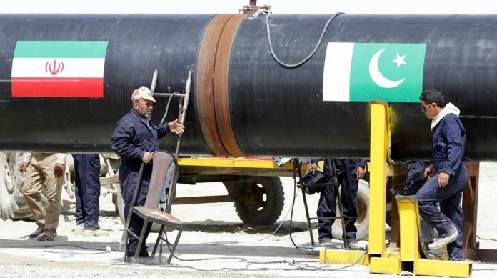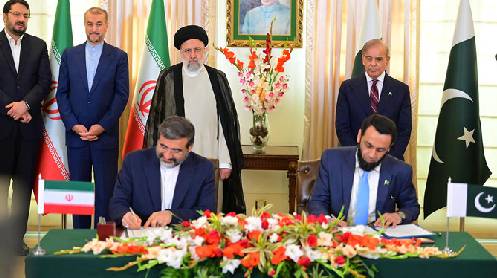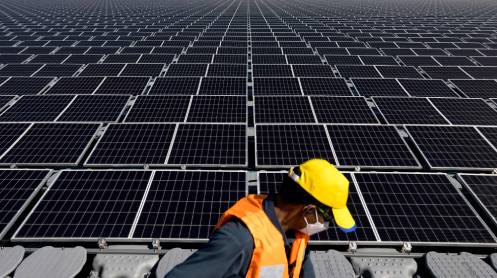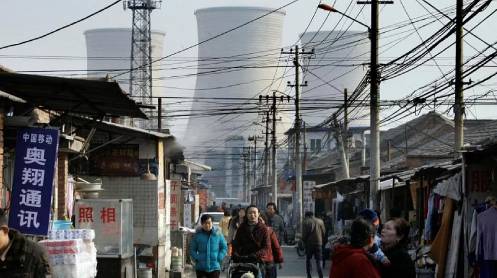Pakistan’s government faces scrutiny over its conflicting energy policies, as it touts promoting solar energy while planning to expand IPP contracts. Reports indicate the Ministry of Power is busy discouraging solar panel installations: The Central Power Purchasing Agency has sent a summary to the Power Ministry proposing to charge Rs. 2000 per kilowatt from solar panel grids, up from Rs. 12 per kilowatt.The government plans to charge domestic or commercial solar panel owners Rs. 2000 per kilowatt, intending to collect Rs. 24,000 from 12-kilowatt solar panel users.The Power Division has…
Read MoreDay: April 25, 2024
Pakistan Appeals for US Waiver on IP Gas Pipeline Amid Energy Needs
Pakistan is making a case for a US waiver regarding the Iran-Pakistan (IP) gas pipeline to address its pressing energy requirements and avoid potential penalties amounting to $18 billion if Iran opts for arbitration through a France-based mechanism. In a letter addressed to President Joseph R. Biden, an energy and water consultant and adviser to the Centre for Research and Security Studies (CRSS), Arshad H. Abbasi, underscored Pakistan’s strategic alignment with the US historically, particularly during significant global events such as the USSR invasion of Afghanistan. However, Abbasi pointed out…
Read MorePakistan and Iran to Strengthen Economic and Energy Ties, Emphasize Regional Stability
During President Ebrahim Raisi’s visit to Pakistan, both countries emphasized enhancing economic cooperation and addressing regional challenges. The visit resulted in a joint statement outlining key areas of collaboration and mutual understanding. One significant outcome is the commitment to expedite the Free Trade Agreement (FTA) between Pakistan and Iran, highlighting the importance of economic integration and trade facilitation. Additionally, cooperation in the energy sector, including trade in electricity, power transmission lines, and the IP gas pipeline project, was reaffirmed, underscoring the shared interest in energy security and sustainability. Furthermore, both…
Read MoreIEA Predicts Sharp Drop in Battery Costs to Accelerate Renewable Energy Adoption
LONDON, April 25 (Reuters): According to the International Energy Agency (IEA), the anticipated significant decline in battery costs for energy storage in the coming years will hasten the global shift towards renewable energy and away from fossil fuels. The IEA’s Batteries and Secure Energy Transitions report highlights the crucial role of energy storage in ensuring the reliability of renewable sources like solar and wind power. By 2030, the total capital costs of battery storage are expected to plummet by up to 40%, making renewable energy coupled with storage systems more…
Read MoreChina’s Coal Consumption to Decrease Modestly by 2040, Despite Global Climate Objectives
A recent report by Norwegian risk assessment firm DNV suggests that China’s coal consumption, although expected to decline by one-third by 2040, will still remain a significant part of its energy mix. This outlook contradicts global climate goals that aim to phase out coal power capacity by 2040 to limit temperature rises. According to the report, China’s coal consumption will experience a minor increase in the next two years before gradually decreasing. However, coal will continue to play a substantial role, comprising around 25% of its peak consumption by 2050.…
Read More







